Cruise to Kazakhstan: the first day in Kazakhstan (II)
This is the second part of the post about our first day in Kazakhstan. Start the post read here.
According to one of the local legends, the hordes of enemies came to Mangistau land, covering the land like locusts. The locals stretched their hands to heaven in prayer for help and were heard. The heavens opened with torrential torrents, thunder and lightning. In an instant all the enemies turned into stones. Thus appeared on Mangistau endless fields and ridges of unusual stone formations - globular concretions.
74. 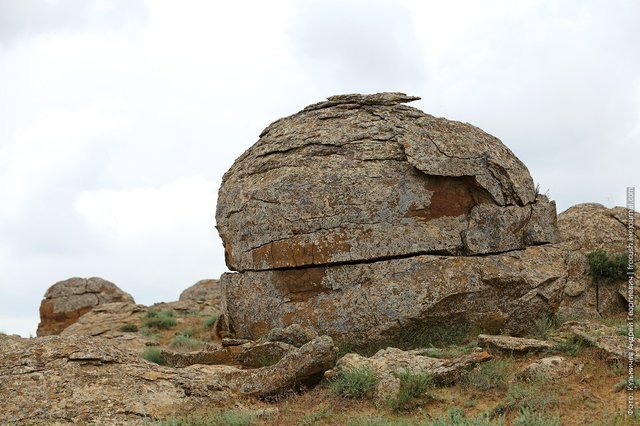
But this is a legend, but as it was in fact, what is the nature of the formation of stone nodules - scientists still can not come to a common opinion.
75. 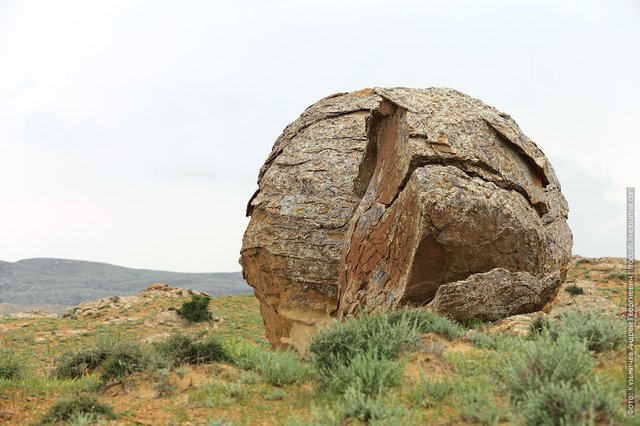
The size of stone nodules reaches from a few centimeters to four meters in diameter. Nodules lie in the sand layers of the valleys between the Karatau ridge and the ledges of North and South Aktau. Time of origin: 180-120 million years ago, geological era: Mesozoic, period: Lower Cretaceous. Concretion - from the Latin word concretio - coalescence, condensation. These rounded forms are formed in loose seams of sedimentary rocks with a liquid filler content under the influence of electro magnetic fields. The centers of such tightening can be magnetized grains of minerals, shells, teeth and bones of fish, plant remains. However, geologists do not have a clear view of the process that created these mysterious entities.
76. 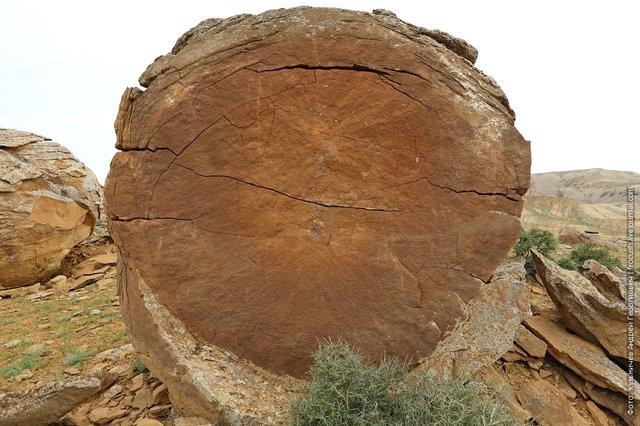
The center of one stone ball is fossilized ammonite, an extinct subclass of cephalopod mollusks. The name ammonites received in honor of the ancient Egyptian god Amon with spiral horns.
77. 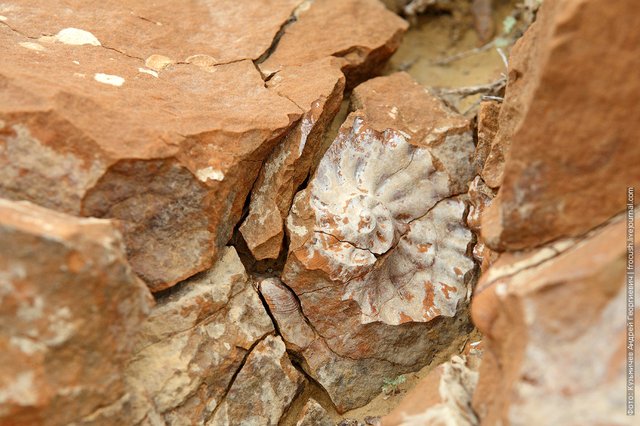
And here the turtles are everywhere.
78. 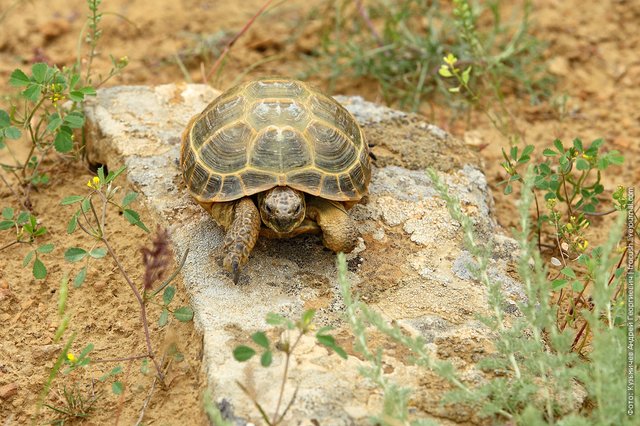
The most probable version of the origin of stone balls is that they were formed in conditions of warm water bodies of the Jurassic and Cretaceous periods with favorable conditions for the development of plankton. Silt accumulations of small organisms, the remains of dead animals became the core of balls, which formed a dense sandy material on the principle of a snowball. After the retreat of the water, the round blocks appeared on the surface and were treated with weathering processes.
79. 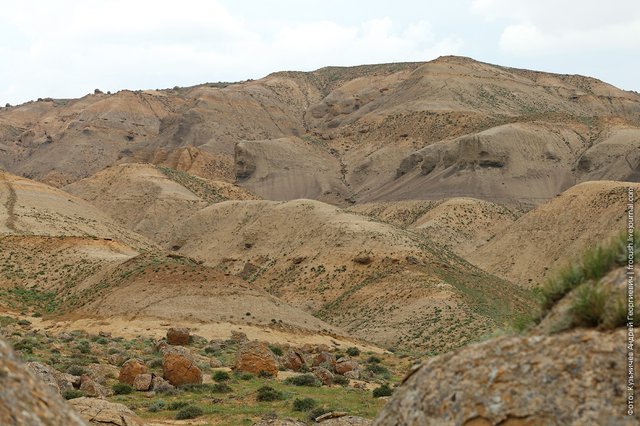
Only in this version one small incoherence. 70% of the balloons consist of iron. And where did it come from, if the version of the concretion is a "snowball" made of sand, and sand is silicon dioxide? Solid riddles.
80. 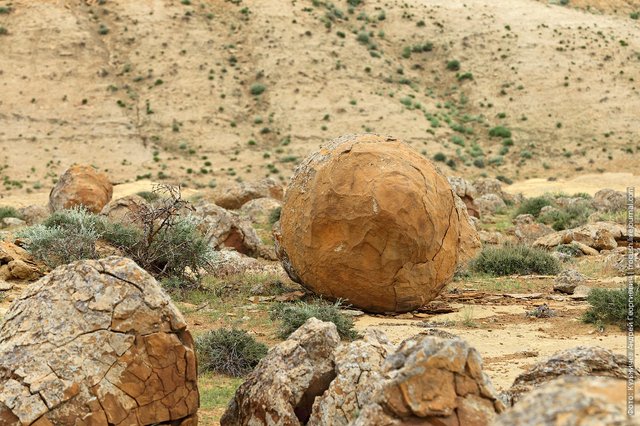
We leave the versions of the origin of stone nodules to scientists, but we simply admire these strange stone balls which are many here.
81. 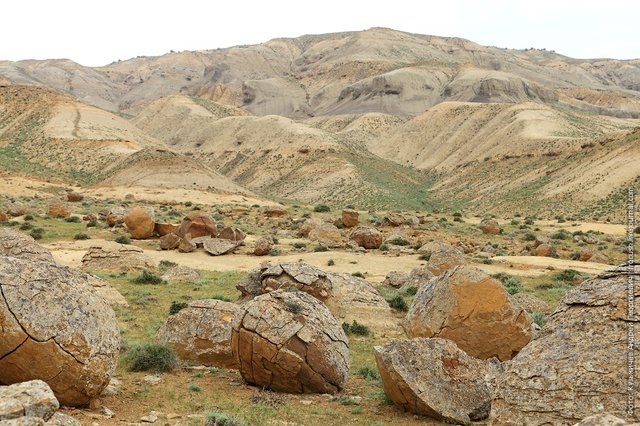
82. 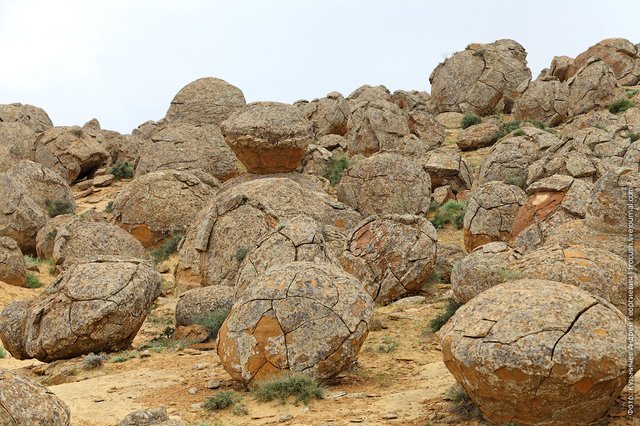
83. 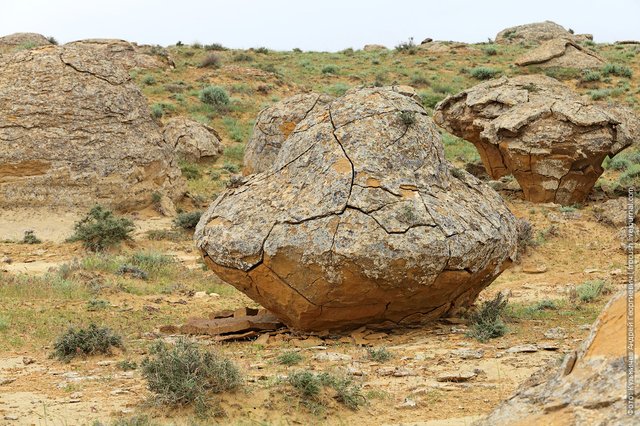
84. 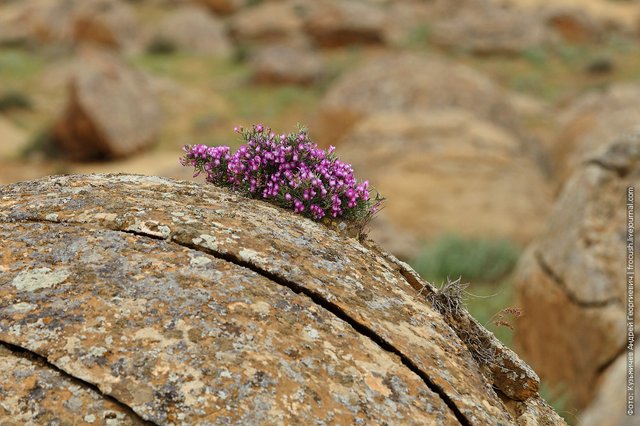
85. 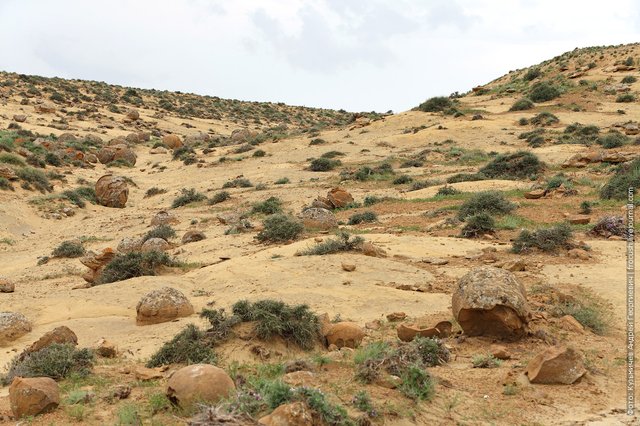
86. 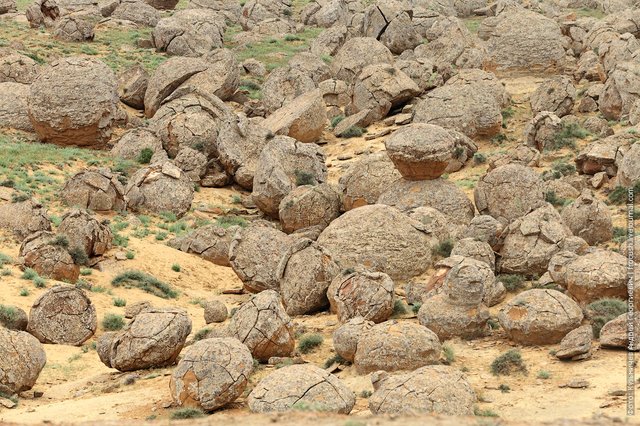
87. 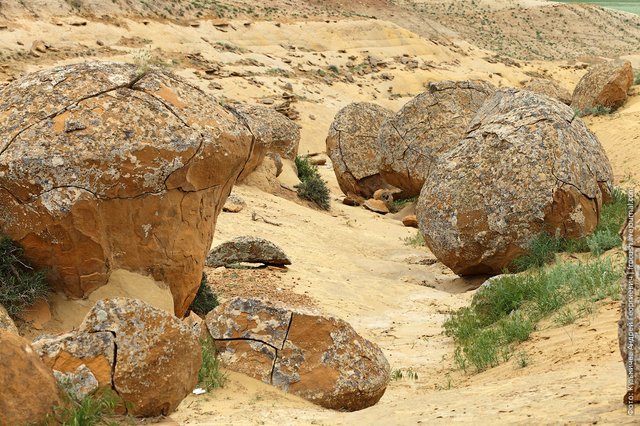
88. 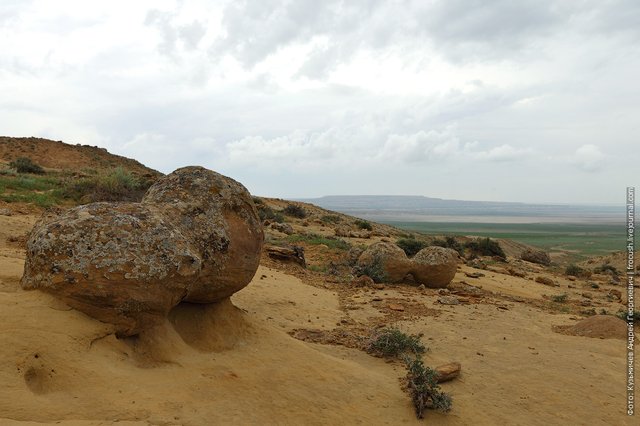
89. 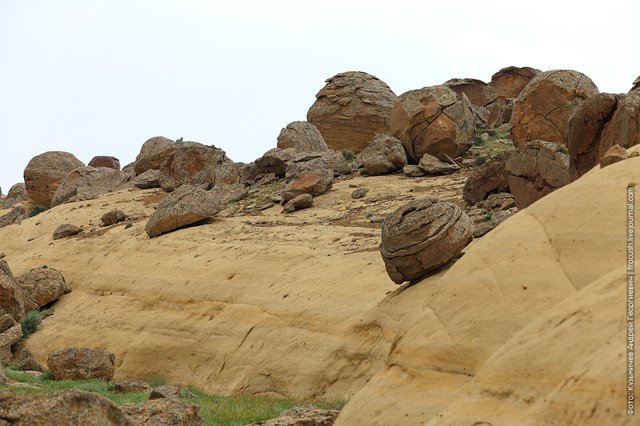
90. 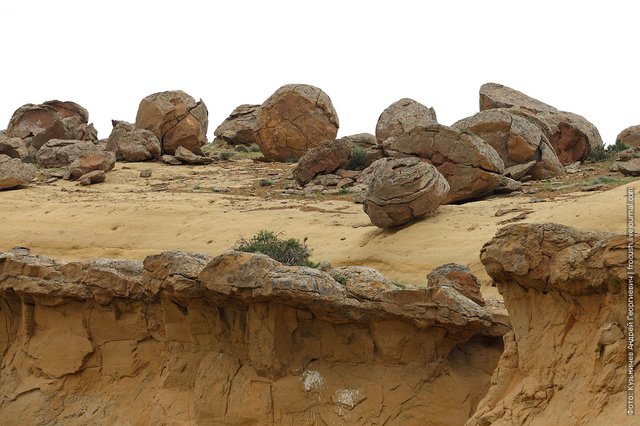
And here is another local legend. There lived one person who was very fond of camels. I looked after them, treated them. Camels also loved their doctor. As time passed, the camel's doctor died, and it became so sad for the camels that they were petrified. Actually in the photo: "petrified camels".
91. 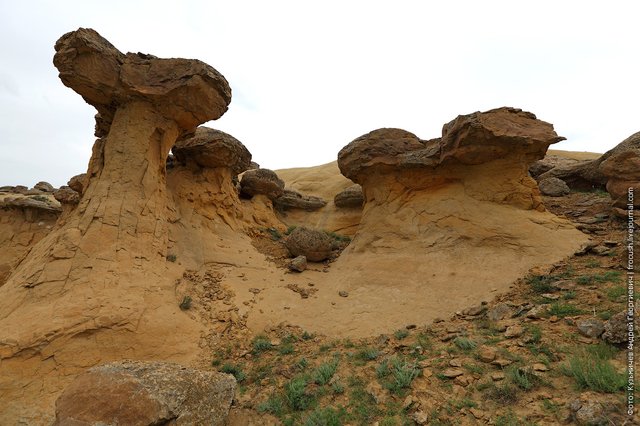
In honor of this camel healer built in the rock is a small mosque.
92. 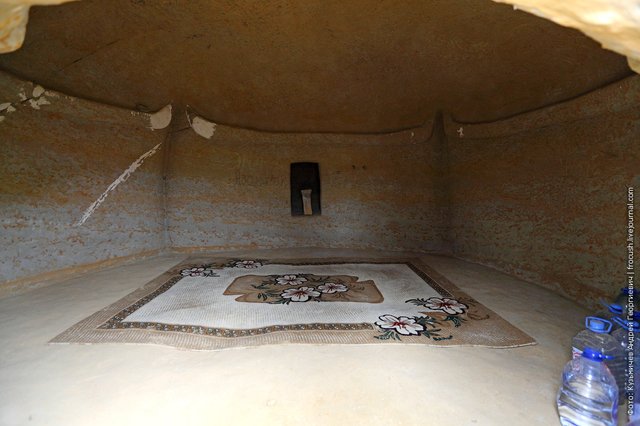
During the visit to the valley of Torysh, looking at the stone balls lying on the slopes, I was not left feeling: how such a 70-ton ball will roll - it will flatten everything in its path and me in addition!
93. 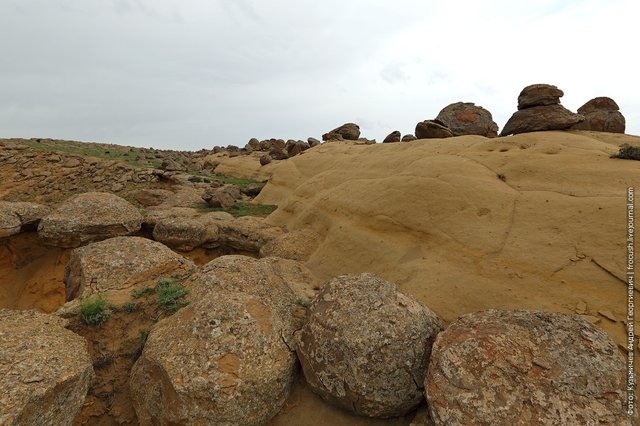
Look over there. Some balls are right on the slope. It seems that a little push and roll. But everything went well, balls on the slopes did not ride :)
94. 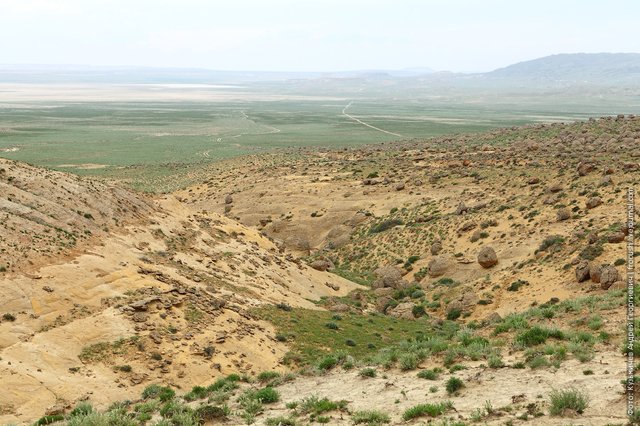
95. 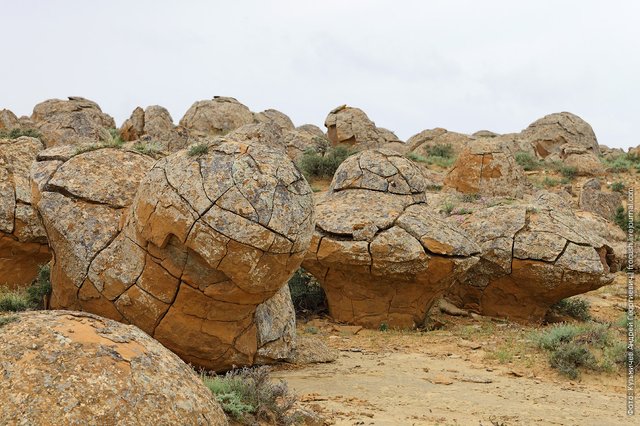
96. 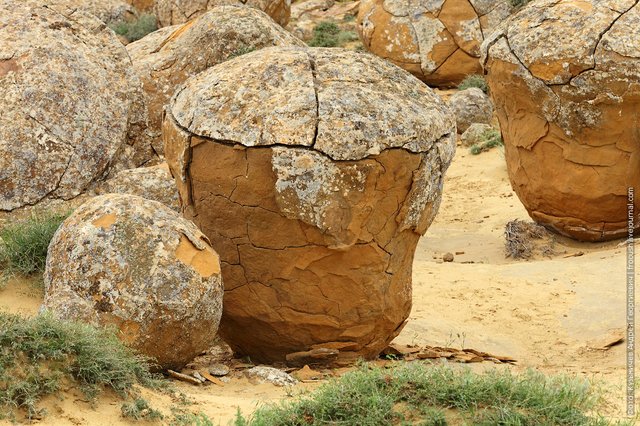
The nodule of the turtle's face.
97. 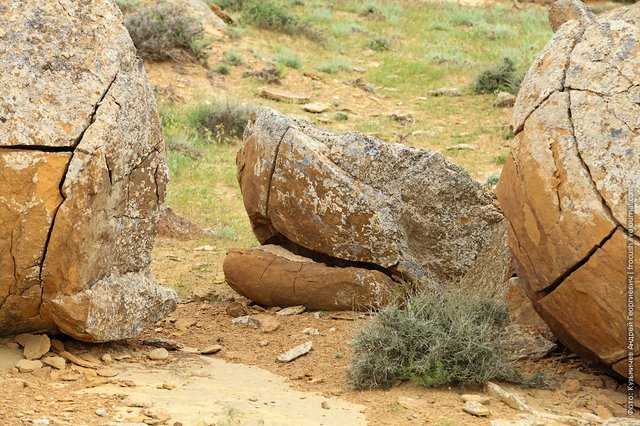
And again the turtle.
98. 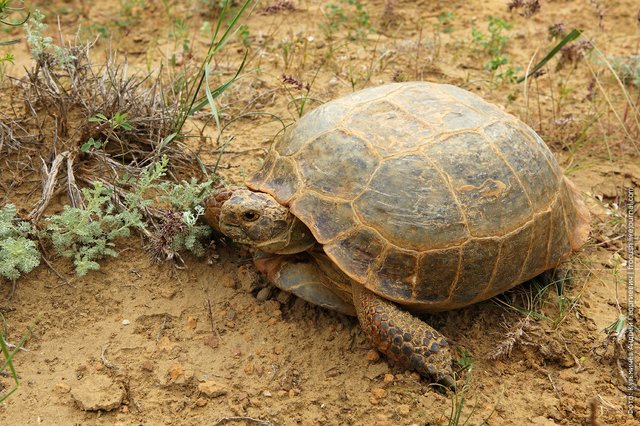
In the valley of Torish I made one gross mistake - I did not photograph a tourist near the stone ball, but now it's not quite clear what size these balls are. Here are just one photo in the frame of the hit the tourists, and you can slightly correlate the size of the balls with human growth.
99. 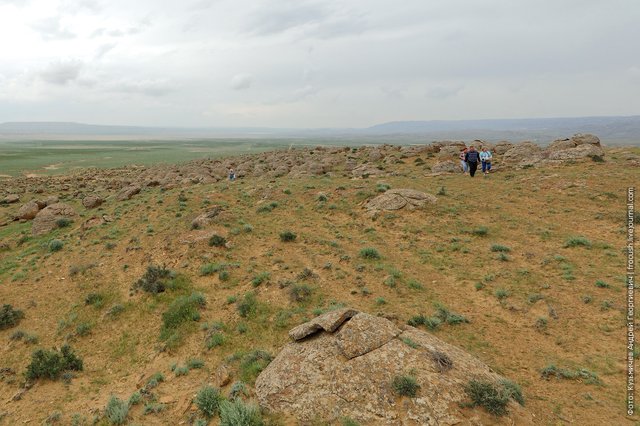
I will show a few more pictures of the valley of Torish and stone concretions in it.
0,1K. 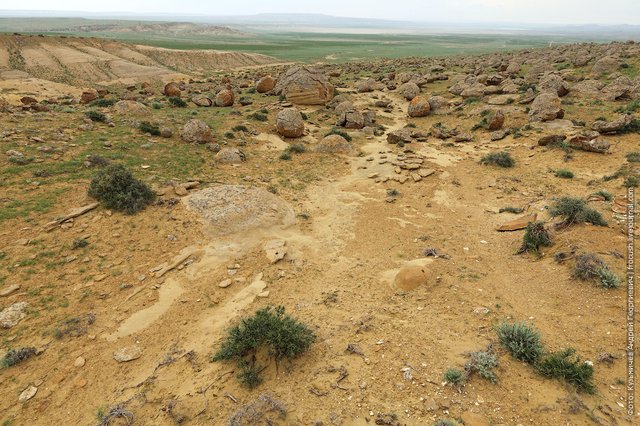
101. 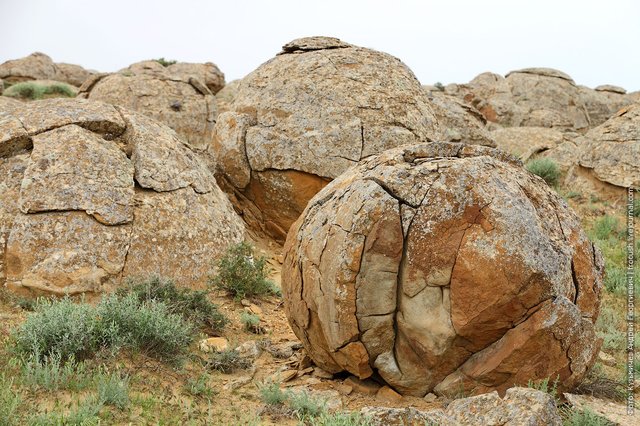
102. 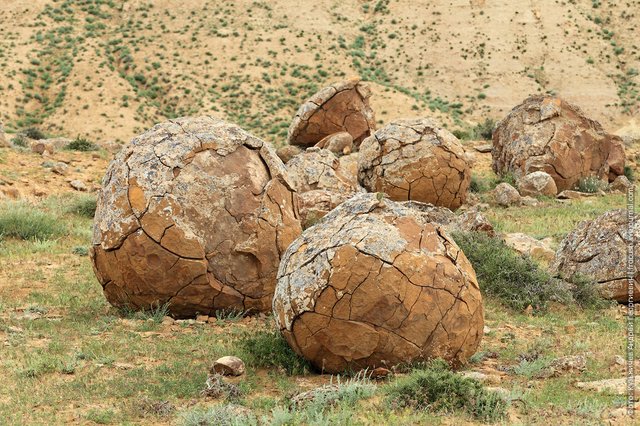
103. 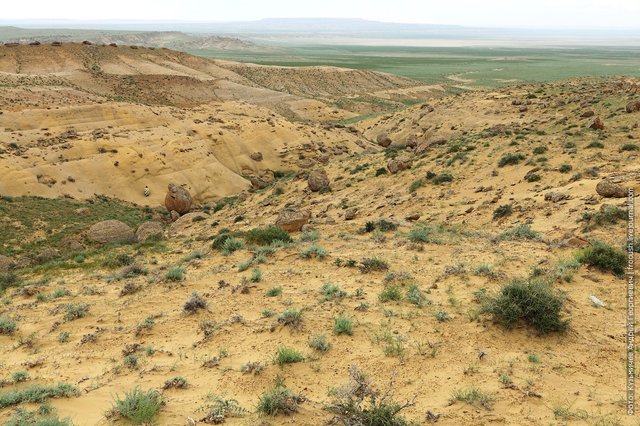
104. 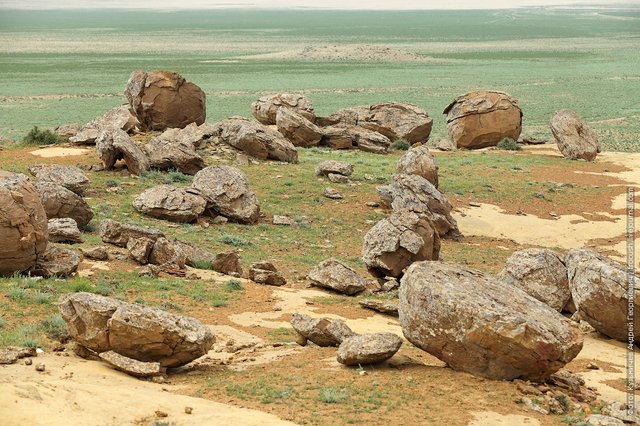
105. 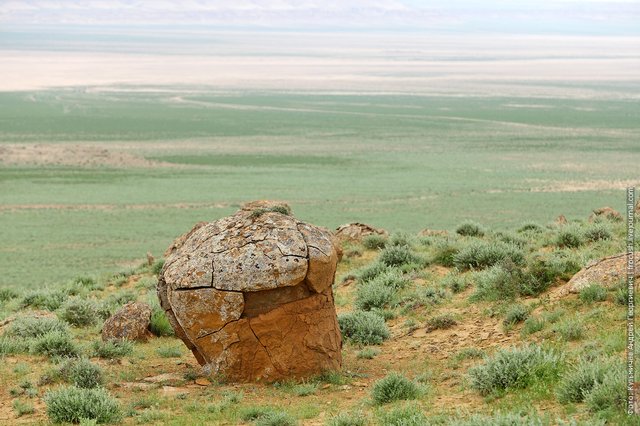
106. 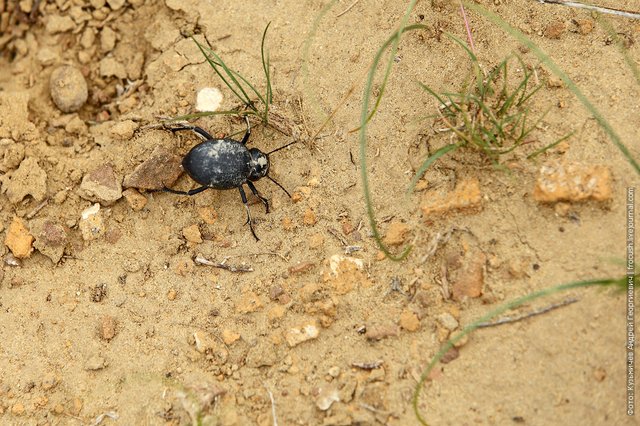
107. 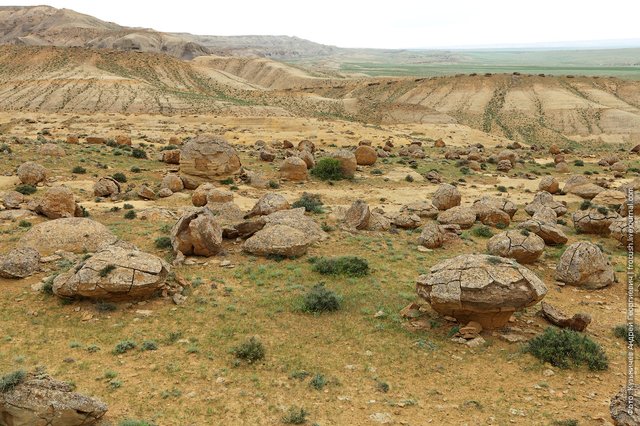
108. 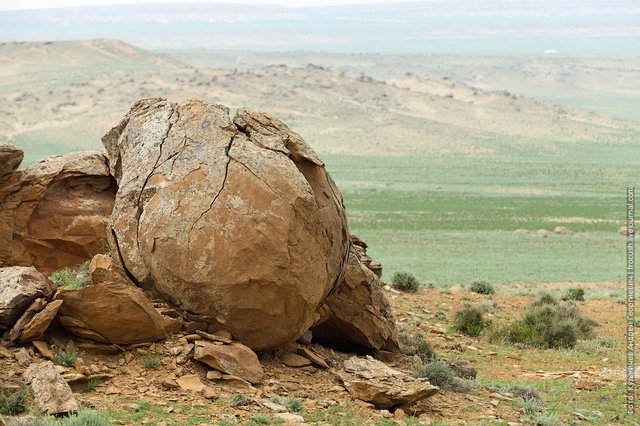
109. 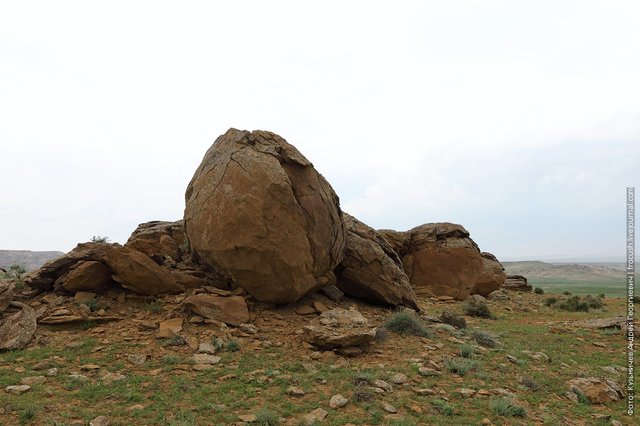
110. 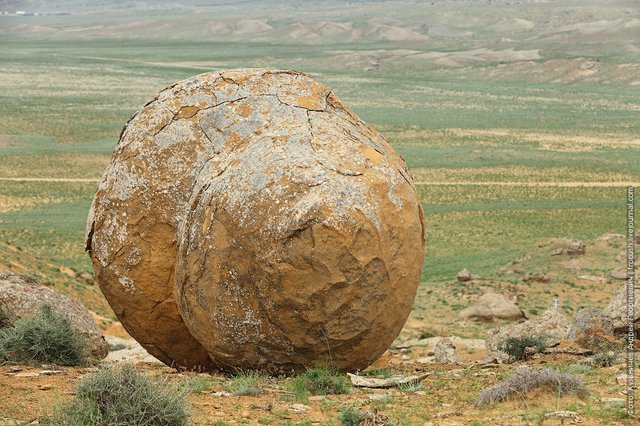
111. 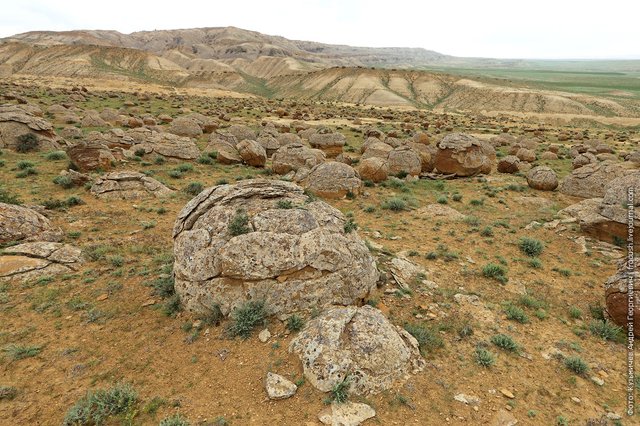
112. 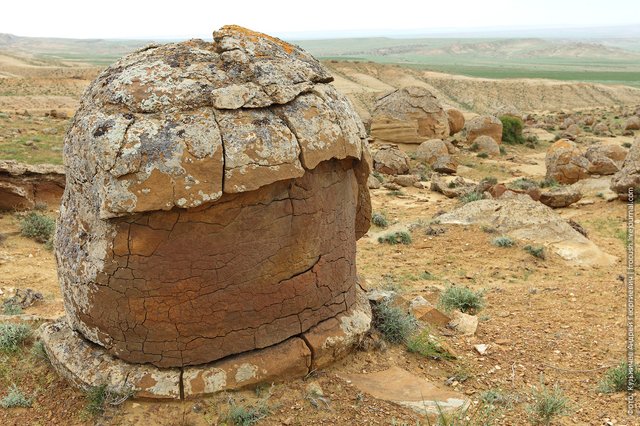
113. 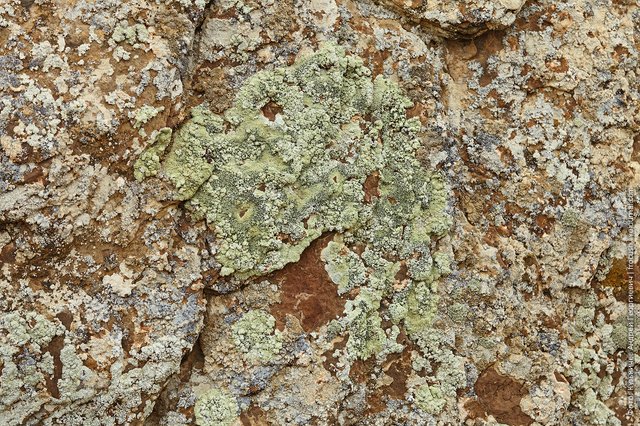
We have looked at such a strange place.
114. 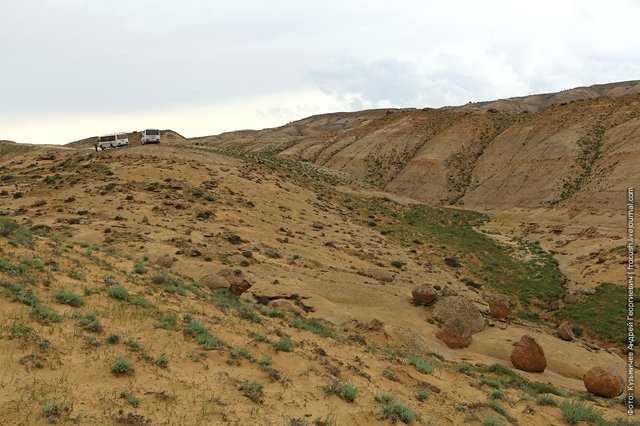
It's time to return to the port of Bautino.
115. 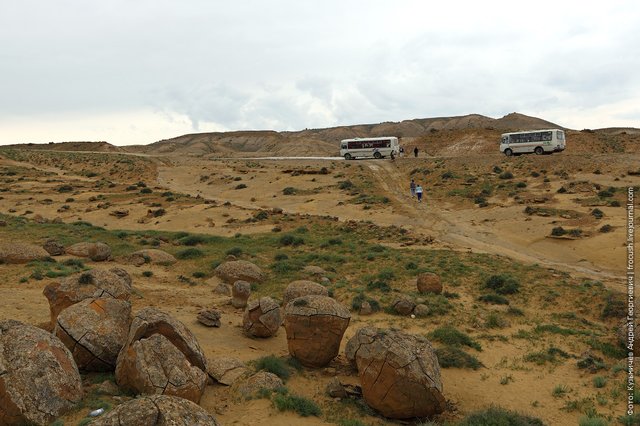
On the way to the port we make a small stop. I photograph the road. This is a good road :) It's ok to go around it.
116. 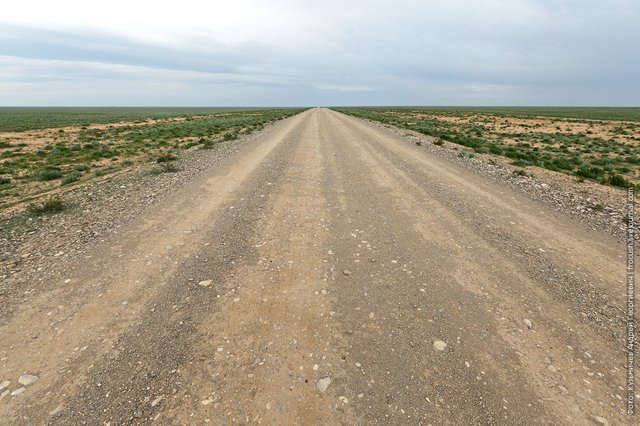
It turned out that we stopped for a reason. It was necessary to refuel a little (Full PPC, of course, I hope that this driver will no longer be allowed to transport tourists).
117. 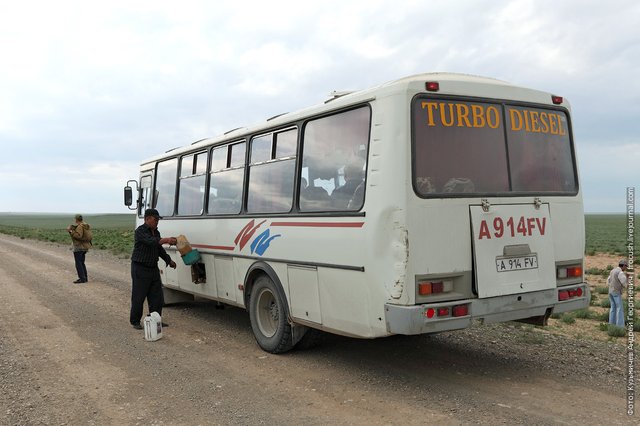
Returning to the port "Bautino", we immediately moved to another bus and drove to the very near the port city of Fort-Shevchenko.
May 30, 1847 33-year-old Taras Shevchenko for the satirical poem "Dream" ("For writing the outrageous and highly insolent") by recruitment was assigned to military rank and file in the Separate Orenburg Corps. From October 17, 1850 to August 2, 1857, he served in the military fortification of Novopetrovskoye (since 1939, in honor of the poet, the city was named Fort-Shevchenko). Here we will examine the halls of the museum of Taras Shevchenko.
118. 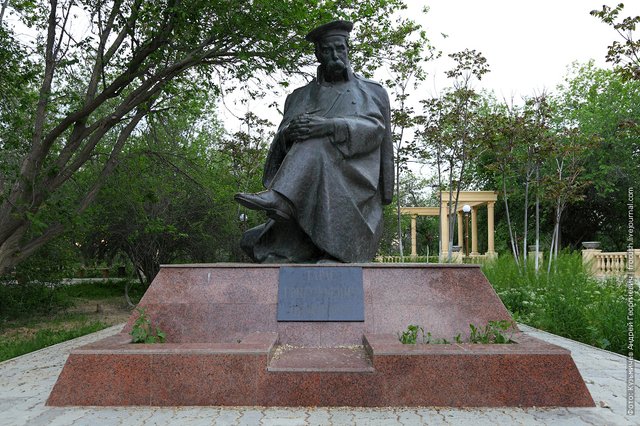
Taras Grigorievich lived there for seven years in this dug-out.
119. 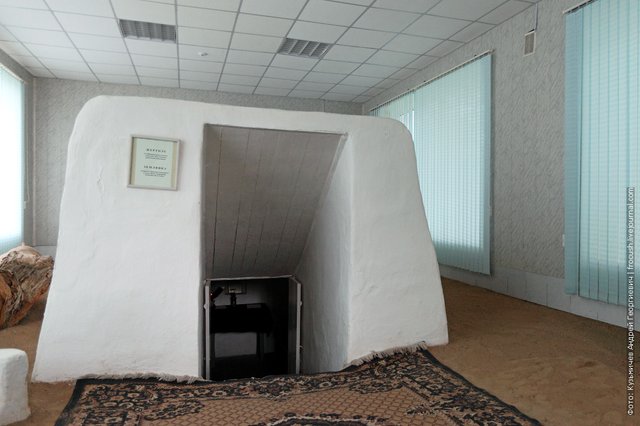
The Shevchenko Museum in Fort-Shevchenko.
120. 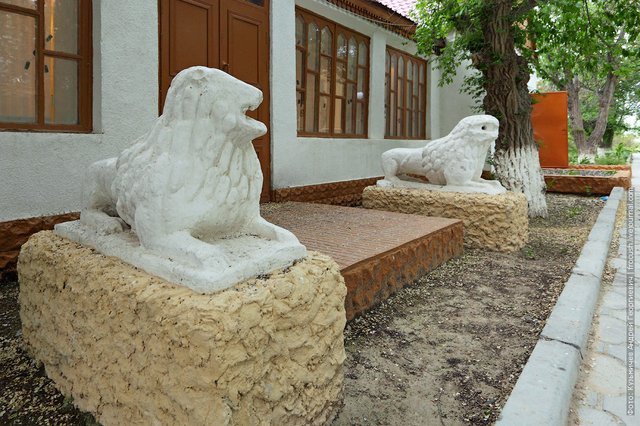
The museum complex is located on the territory of the former garden-garden of Novopetrovsky fortification. And the main exposition was a place in the halls of the commandant's summer house.
121. 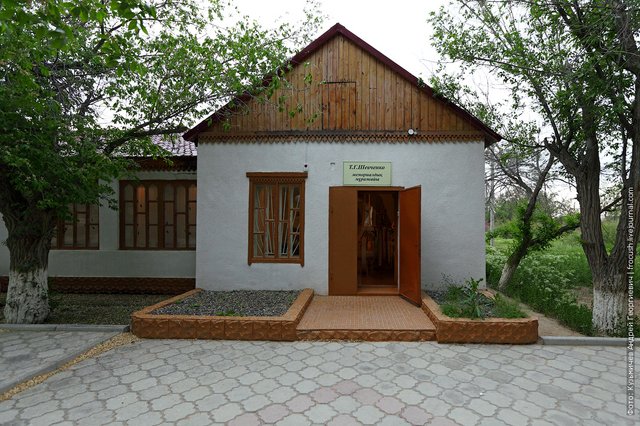
In 1851, Shevchenko was a participant in the Karatau expedition for the exploration of coal deposits on the peninsula. He created an artistic, graphic series of works about Karatau, consisting of approximately 18 completed works and about 60 sketches, sketches, sketches, recreations of landscapes, buildings, monuments and other attractions, as well as life, ethnography of the inhabitants of the local Places, expedition camp and other impressions of the artist.
122. 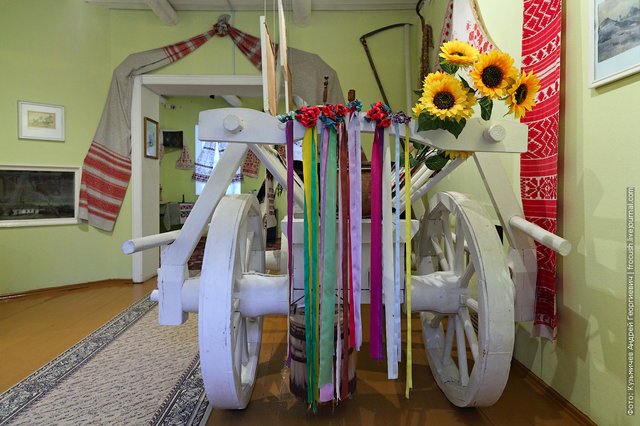
The main part of the exposition is the materials telling about the life and work of T. Shevchenko in 1850-1857.
123. 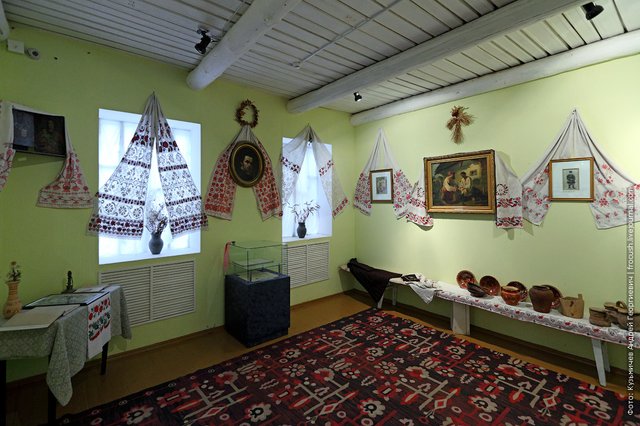
On the shelves and stands there are copies of many documents relating to the passage of the soldiers' service of the poet in the Novopetrovsky fortress, among which - and the order of the commandant Uskov, who freed the "soldier Shevchenko" from the drill, transferring him to his summer residence allegedly for economic work.
124. 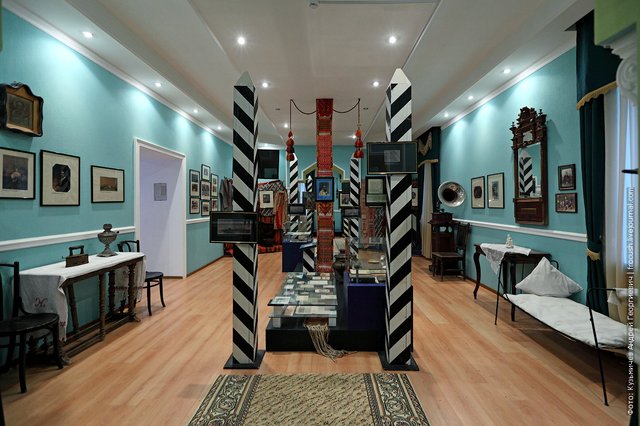
125. 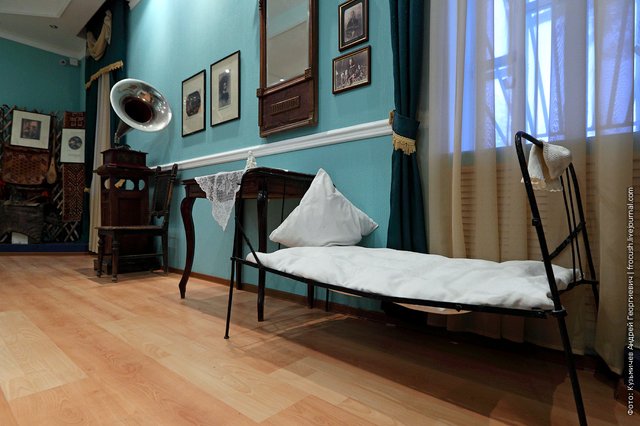
126. 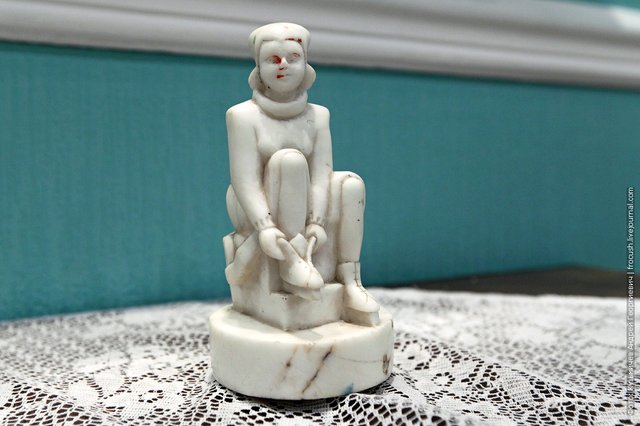
127. 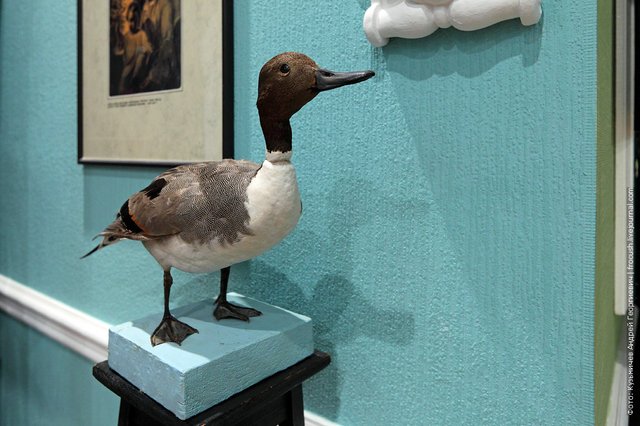
128. 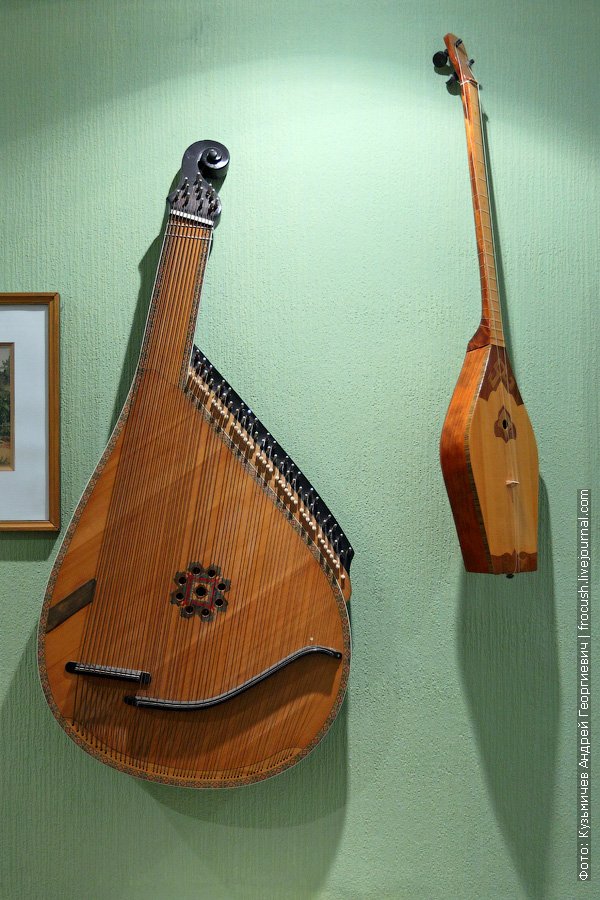
129. 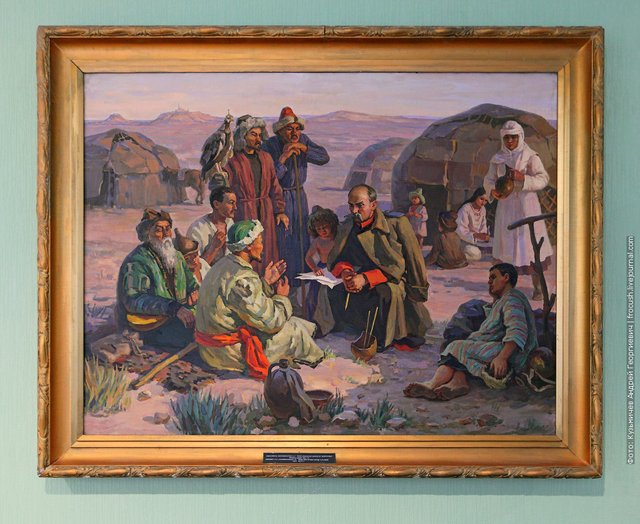
130. 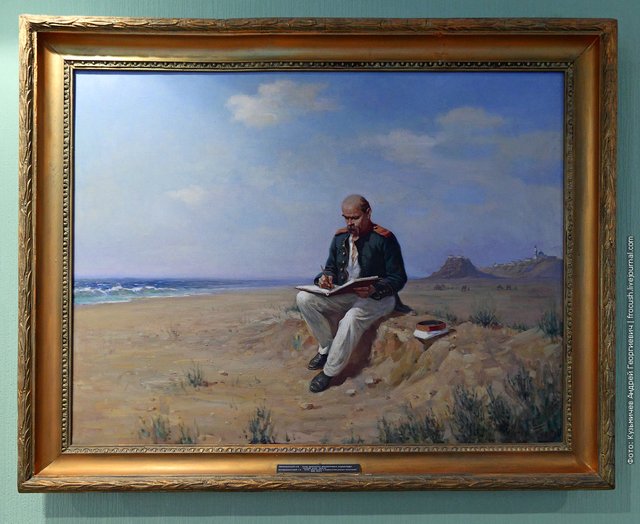
131. 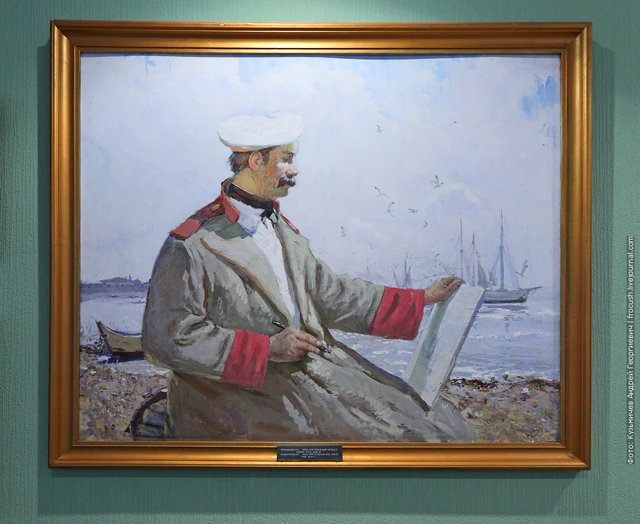
132. 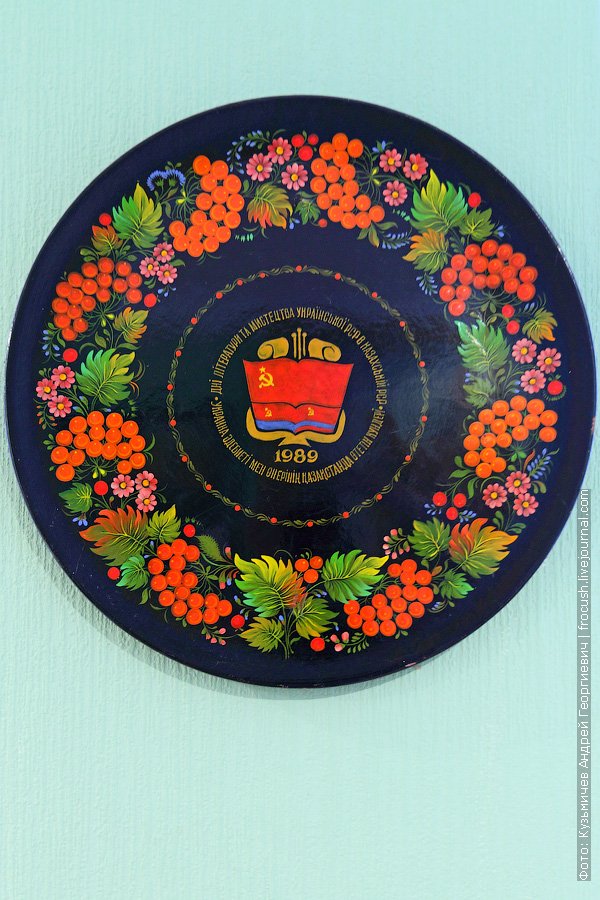
Next to the museum of Shevchenko there is an ethnographic museum. The building is in the form of a yurt.
133. 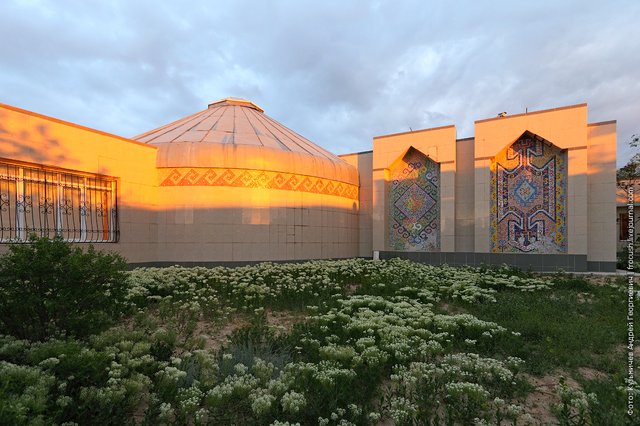
Simply amazing. You can say - it's not the center of Kazakhstan, and here such an interesting museum.
134. 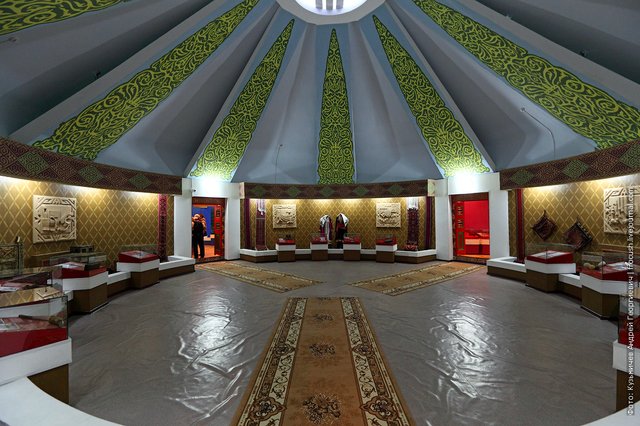
But on this day there was a lot of information and impressions, which were supplemented by long journeys. Attention in the museum was no longer concentrated :)
135. 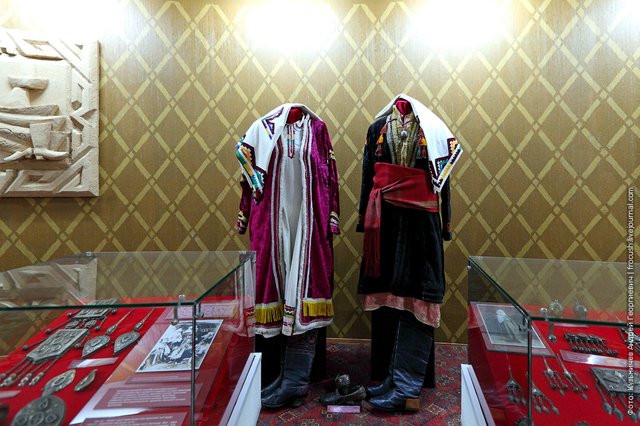
By the way, on the right in the photo, a very rare stone-cut tombstone of Oshkartas - a gravestone in the form of a ram or moufflon - was shot into the frame.
136. 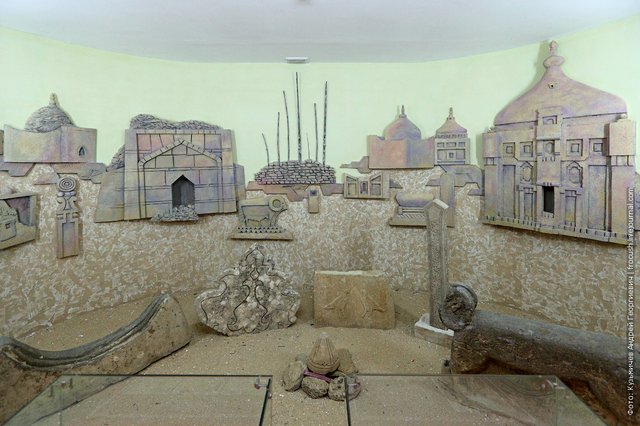
137. 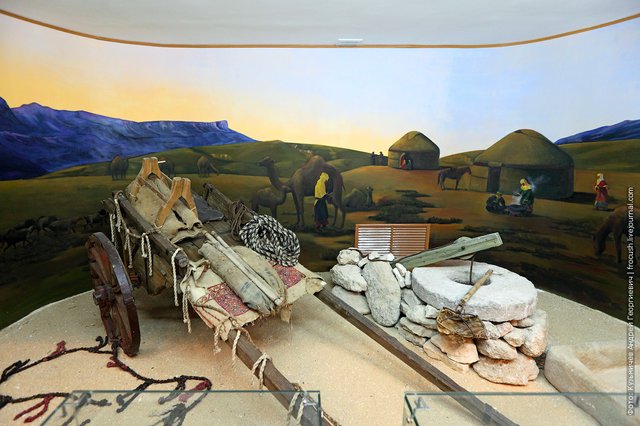
Anthropomorphic stele (1st millennium BC).
138. 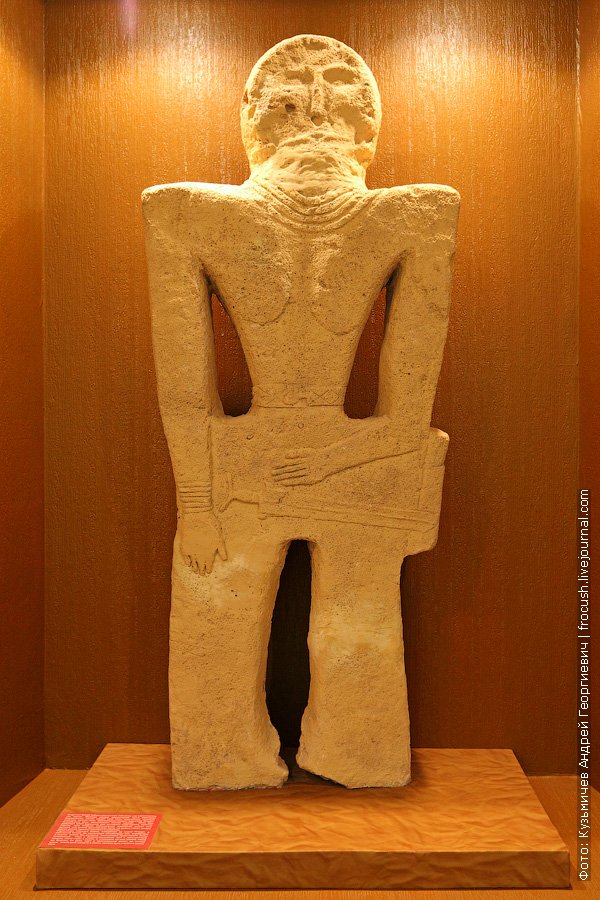
139. 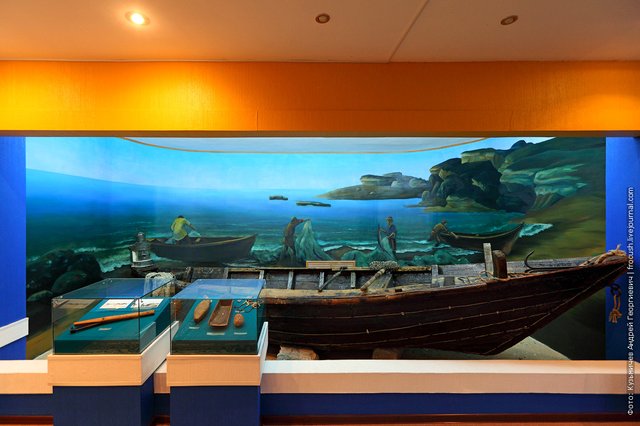
140. 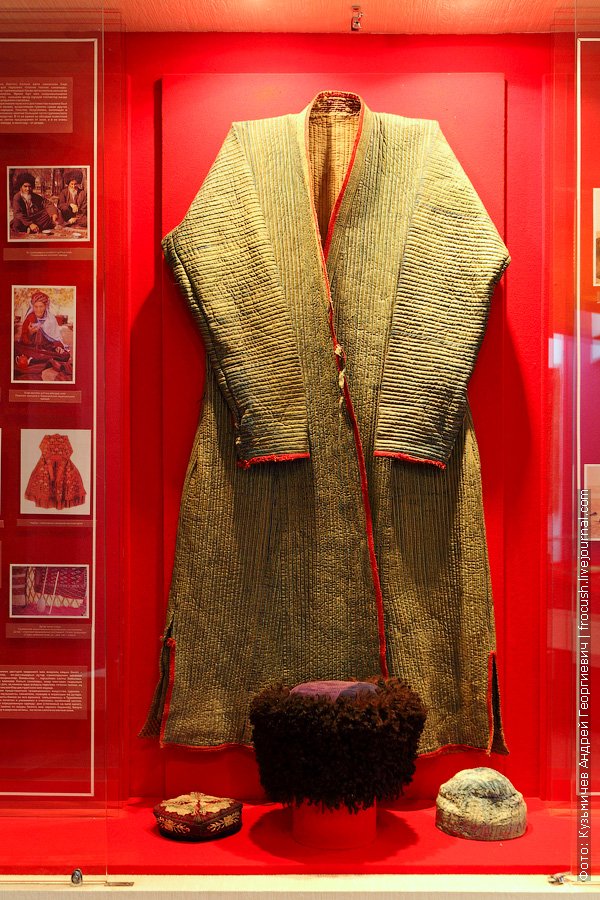
But that's not all. After the ethnographic museum, we got to a "market" specially organized for our arrival. Local residents staged a sale of national delicacies, ornaments and wool articles.
141. 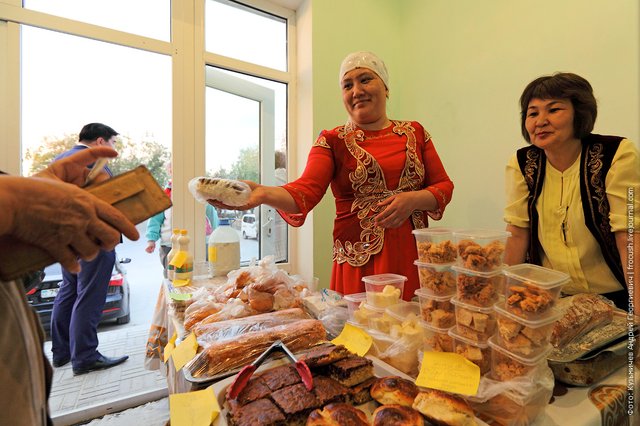
142. 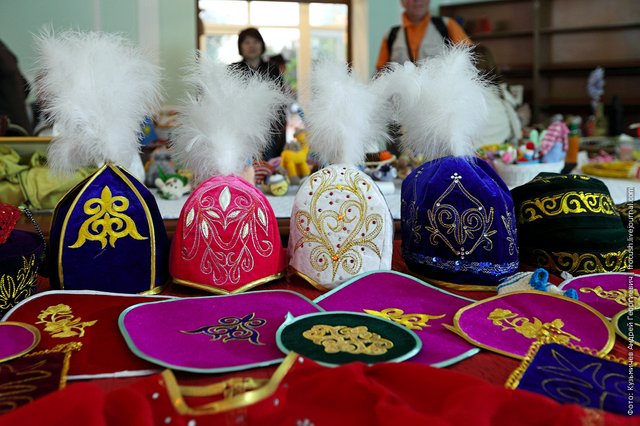
143. 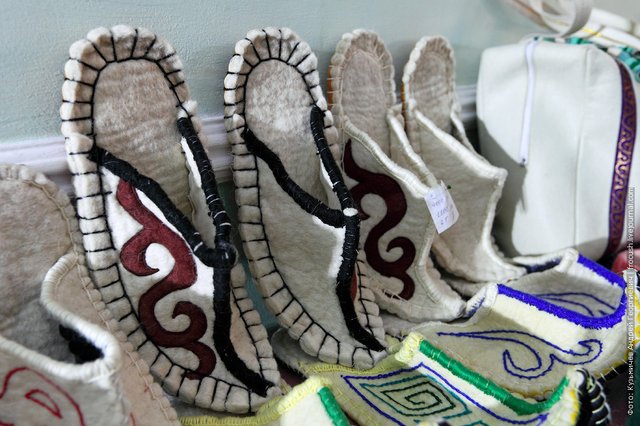
144. 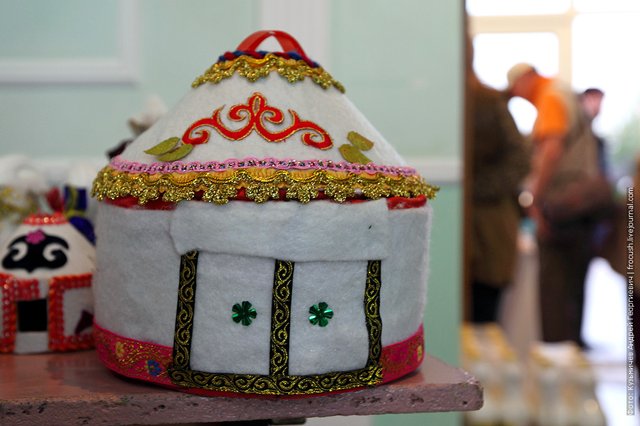
145. 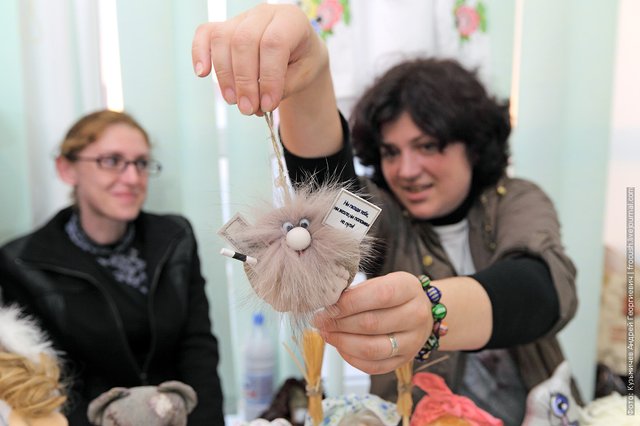
New sculptural composition "Isa-Dosan" in the city of Fort-Shevchenko.
146. 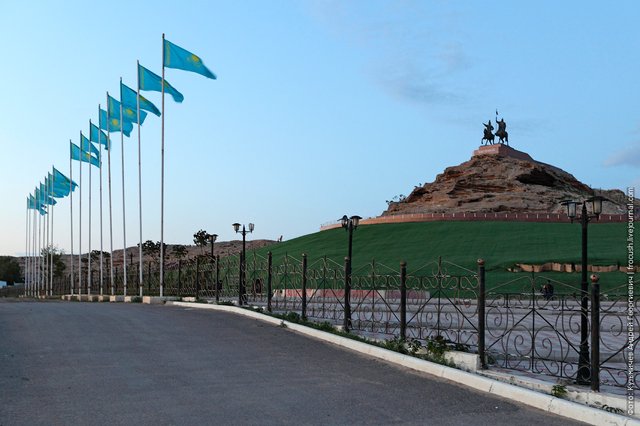
In the second half of the XIX century, the tsarist administration sharply increased taxes on Mangistau, which led to popular unrest, the heroes of which were Isa Tlembayuly and Dosan Tazhyuly.
147. 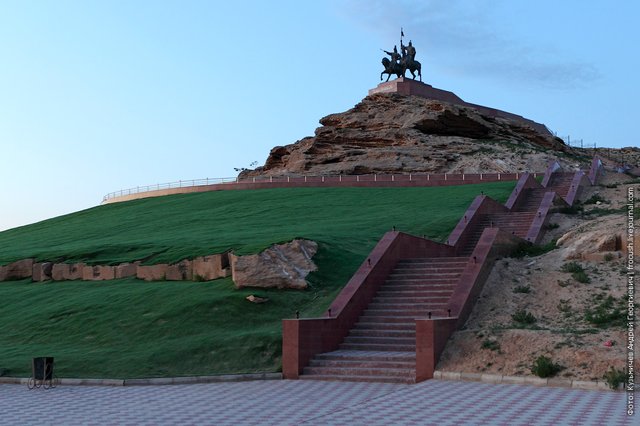
Monument to victims of political repression.
148. 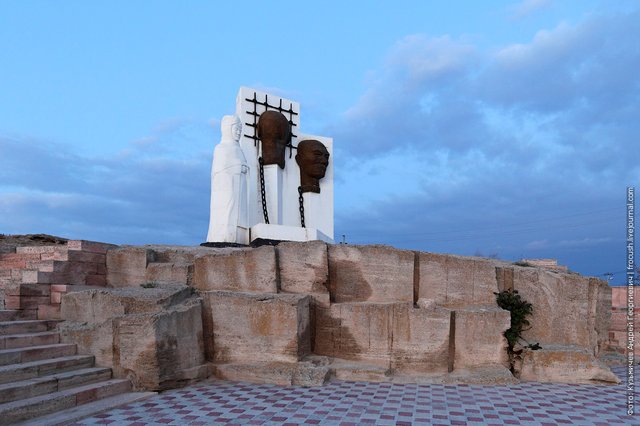
Our evening sightseeing bus. The roads to Bautino and Fort-Shevchenko are more or less even, you can go on a "normal" bus.
149. 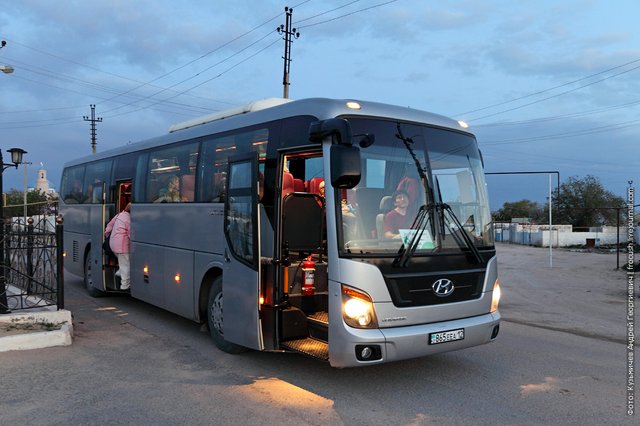
Sunset in Fort Shevchenko. Interesting today was the day.
150. 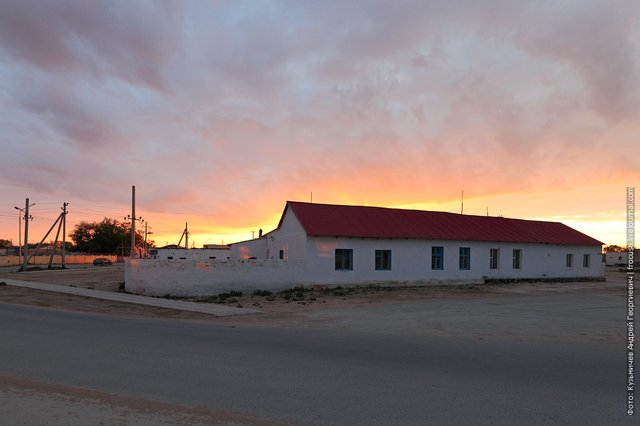
We return to the ship, we have supper and immediately go to bed. Tomorrow will be full of interesting excursions the second day in Kazakhstan.
151. 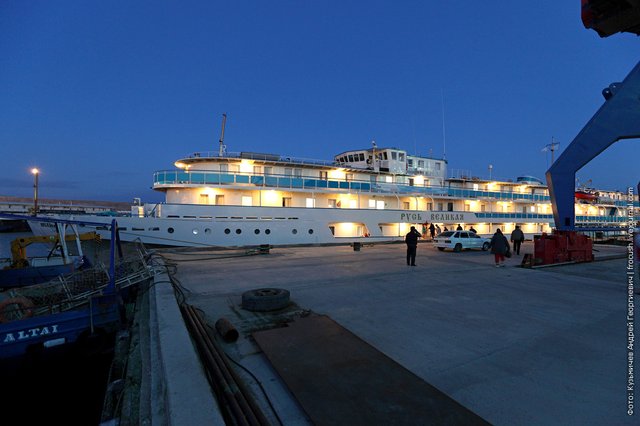
Vote for my post and subscribe to my blog @frocush!
Find me! LiveJournal | Facebook | Instagram
Great photos, outstanding places! I love them!
Up- and resteemed!
And in addition, you have a new follower!:)
@kalemandra Many thanks. I do not need to stop there. I will daily please my subscribers with quality photo-stories :)
@hilarski What does your comment mean?
@hilarski You did not explain the meaning of your comment. Also, this comment is not relevant to the topic of the post.